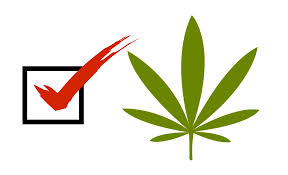Today in Alaska, an amendment permitting recreational marijuana use goes into effect. In November, 2014, the citizens of Alaska in a statewide vote to amend the Alaska constitution voted 53% for and 47% against this amendment. The vote, a majority, prevailed and the new amendment became fundamental law for Alaska. This makes Alaska the third state in the United States to legalize recreational use of marijuana. The new status of marijuana makes it legal for people over the age of twenty-one to consume personal use amounts of cannabis. It is still illegal to sell marijuana and illegal to purchase marijuana. Read the full text of the amendment here.
 Prior to the Alaska amendment, Washington and Colorado were the only states permitting recreational use of marijuana. Medical use is different and requires a bona fide medical need before it can be dispensed. Alaska now must implement the amendment and deal with the issues of public consumption, intoxication, and removing criminal sanctions for possession and use of marijuana.
Prior to the Alaska amendment, Washington and Colorado were the only states permitting recreational use of marijuana. Medical use is different and requires a bona fide medical need before it can be dispensed. Alaska now must implement the amendment and deal with the issues of public consumption, intoxication, and removing criminal sanctions for possession and use of marijuana.
The initiative in Alaska left many issues to be resolved. For example, the initiative and amendment does not permit smoking marijuana in public. Smoking in public does not deal with the consumption by other means in public, such as drinking fluids containing marijuana and cannabis extracts. Nor does it deal with eating consumables containing cannabis. The City of Anchorage, Alaska, has an ordinance punishable by a fine of one hundred dollars if cannabis is smoked in public, but no definition of what the word public means. Reportedly, police in Anchorage are ready to issue citations, but the officers have not been instructed on what constitutes a violation of the city ordinance. Alaskan lawmakers have to define the scope of permitted consumption and any criminal violations which involve the abuse of the right to consume marijuana. The State board regulating alcohol has been delegated authority to regulate but the empowering statute under administrative law is open to interpretation and challenge, and so most of these issues will be resolved in proposed legislation and in criminal courts.
A larger question remains as to federal criminal law and their enforcement in states such as Colorado, Washington and now Alaska. Federal criminal law clearly identifies cannabis as a controlled substance, and federal laws regulate all controlled substances. The possession, sale and transportation of marijuana is a crime under federal law. States cannot overrule federal laws and the conflict creates very real problems. For example, can a resident of Alaska purchase recreational marijuana using a credit card without exposing the credit card company to criminal charges? If one writes a check, and thereby uses interstate commerce banking channels, is the bank subject to criminal prosecution for processing a check? If one mails marijuana within Alaska, or uses a commercial shipper such as FedEx, does that expose the carrier to arrest and prosecution under federal law? The answer is clearly YES. The question is whether or not the U.S. Attorney will prosecute under federal law, and that is a policy and political question for the federal government to resolve.
 South Florida Criminal Defense Lawyer Blog
South Florida Criminal Defense Lawyer Blog



